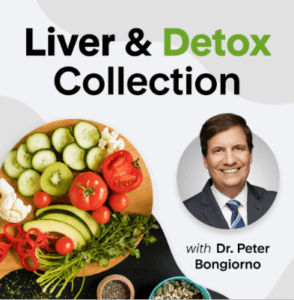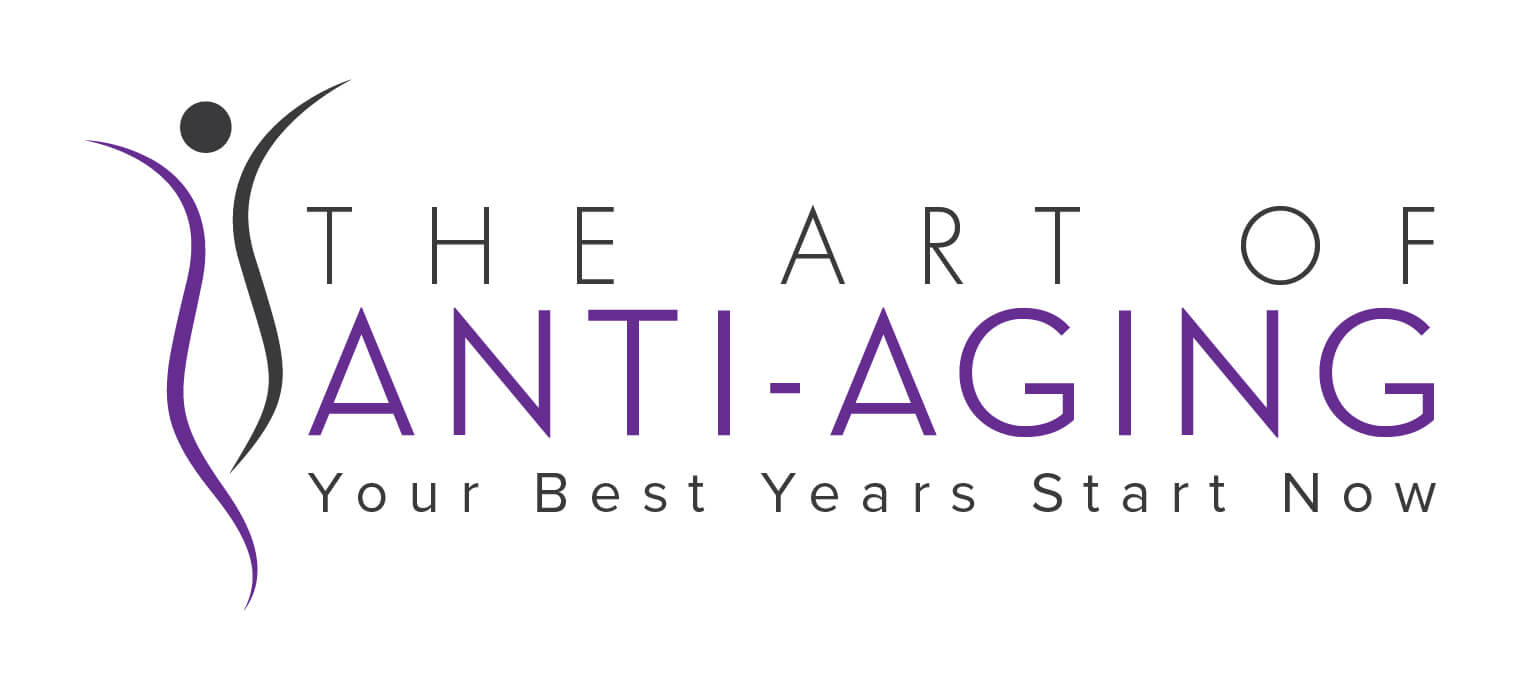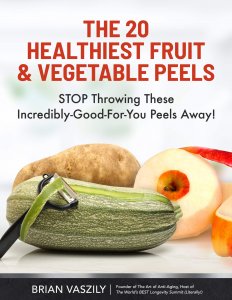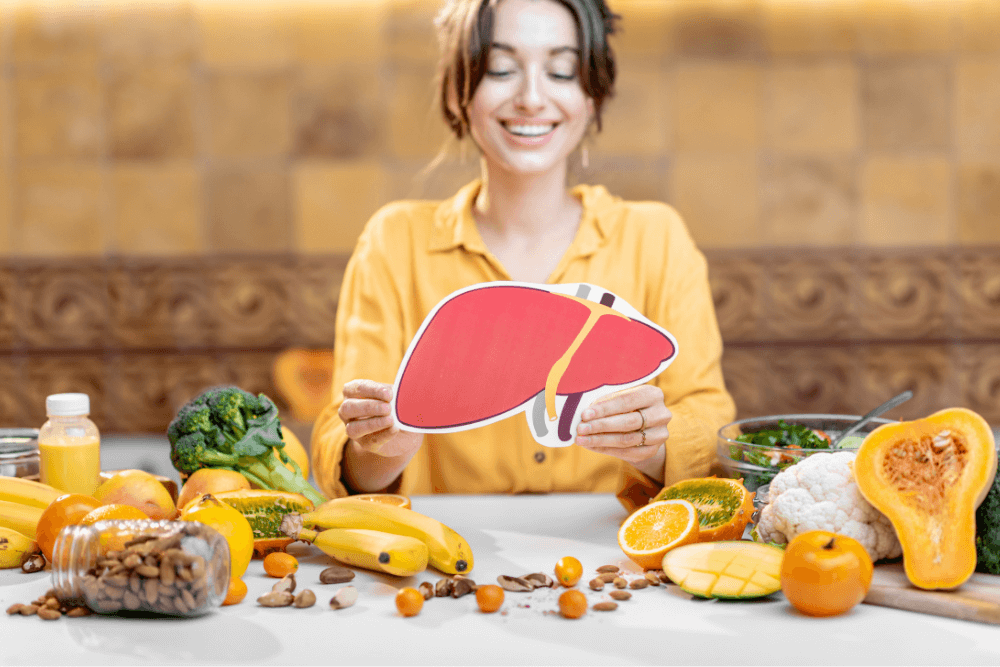Taking care of liver health is one of the most important – yet overlooked – keys to living long and well.
Around ⅓ of all adults now have non-alcoholic fatty liver disease (NAFLD), a condition where excess fat accumulates in the liver. A great number of adults are not even aware they have this condition, as it often has no noticeable symptoms in the early stages.
Meanwhile, many more are affected by other liver conditions, such as cirrhosis and hepatitis. And each year, about 1 million adults worldwide are diagnosed with liver cancer.
The liver is involved in over 500 vital processes in your body. For example, it detoxifies harmful substances, produces bile to aid digestion, and stores essential nutrients like glucose and vitamins. It also regulates cholesterol levels and plays a key role in blood clotting by producing proteins necessary for coagulation. Your liver also helps in the breakdown of hormones, which is vital for maintaining hormonal balance.
Given its multifaceted role, working to maintain and improve your liver health is critical. And of the most effective steps you can take is to eat a diet rich in foods that help your liver in different ways. Below are fifteen of the very best, according to recent research:
Top Foods for Liver Health
Cruciferous Vegetables
 Cruciferous vegetables like broccoli, kale, Brussels sprouts, and cauliflower are potent liver protectors due to their high content of glucosinolates. These compounds are known to stimulate liver enzymes involved in detoxification processes (Shivapriya Manchali et al., 2012).
Cruciferous vegetables like broccoli, kale, Brussels sprouts, and cauliflower are potent liver protectors due to their high content of glucosinolates. These compounds are known to stimulate liver enzymes involved in detoxification processes (Shivapriya Manchali et al., 2012).
The sulforaphane found in broccoli is particularly beneficial for liver health as it helps induce detoxification enzymes (Boddupalli et al., 2012), which are crucial for neutralizing and eliminating toxins from the liver. These vegetables also have anti-inflammatory and antioxidant properties, which are beneficial for maintaining healthy liver function (Lobo et al., 2010).
Omega-3 Fatty Acids
Omega-3 fatty acids help reduce inflammation and oxidative stress, which are major contributors to liver damage (Vell et al., 2023). Studies have shown that regular consumption of omega-3-rich foods can lower the risk of developing fatty liver disease (Omega-3 Fatty Acids, 2012).
Additionally, omega-3 fatty acids have been shown to improve liver function by reducing the accumulation of fat in liver cells, which is beneficial for those suffering from fatty liver disease (Liu et al., 2019).
Fatty fish such as salmon and sardines are high in the EPA and DHA forms of omega-3 fatty acids that are especially important for liver health. As so many fish can be contaminated with mercury today, look for safe options (generally, the smaller the fish, the safer in this regard.) Or look for safe fish oil supplement options.
Also, see the 8 top plant sources of omega-3 fatty acids here, especially if you eat little to no fish.
Garlic
 Garlic has long been revered for its medicinal properties, and its benefits for liver health are well-documented. Garlic contains sulfur compounds, particularly allicin, which enhance the detoxification process in the liver by activating liver enzymes that neutralize toxins (Soleimani et al., 2020).
Garlic has long been revered for its medicinal properties, and its benefits for liver health are well-documented. Garlic contains sulfur compounds, particularly allicin, which enhance the detoxification process in the liver by activating liver enzymes that neutralize toxins (Soleimani et al., 2020).
Studies have shown that garlic can help protect the liver from damage caused by oxidative stress and inflammation (Soleimani et al., 2020), making it a useful addition to a liver-healthy diet.
Beets

Beets are rich in antioxidants and anti-inflammatory compounds, such as betalains, which are beneficial for liver health. These compounds help reduce oxidative damage in liver cells and enhance liver detoxification (Sadowska-Bartosz & Bartosz, 2021).
Additionally, beets and beetroot juice have been shown to improve liver function by promoting bile production, aiding digestion, and helping the liver process and eliminate toxins more efficiently.
See 9 other fantastic health benefits of beets here.
Leafy Greens and Chlorophyll-Rich Foods
Leafy green vegetables like spinach, kale, and Swiss chard are rich in chlorophyll, a compound known to support detoxification. Chlorophyll helps to cleanse the liver by neutralizing toxins and promoting the elimination of waste products (Martins et al., 2023).
Green vegetables also provide vital nutrients such as vitamins A, C, and K, which are essential for maintaining liver health.
Berries
 Berries such as blueberries, strawberries, and raspberries are rich in anthocyanins, a type of flavonoid that offers powerful antioxidant protection. Research suggests that the antioxidants found in berries can help reduce liver inflammation and protect against liver damage caused by oxidative stress (Valenti et al., 2013).
Berries such as blueberries, strawberries, and raspberries are rich in anthocyanins, a type of flavonoid that offers powerful antioxidant protection. Research suggests that the antioxidants found in berries can help reduce liver inflammation and protect against liver damage caused by oxidative stress (Valenti et al., 2013).
Regular consumption of berries has been associated with improved liver function, especially in individuals with liver diseases such as NAFLD (Valenti et al., 2013).
Top Herbs and Spices for Liver Health
Ginger
Ginger is a powerful herb that supports liver health due to its anti-inflammatory and antioxidant effects. It helps reduce oxidative stress and inflammation in the liver, which can prevent liver damage and improve overall liver function (Liu et al., 2019).
Ginger also aids digestion, which can indirectly benefit the liver by ensuring efficient nutrient absorption and toxin elimination.
While eating ginger directly is beneficial, to get effective amounts you may want to consider a high-quality organic supplement.
Turmeric and Curcumin
 Turmeric, particularly its active compound curcumin, is widely known for its anti-inflammatory and antioxidant properties. Curcumin has been shown to support liver detoxification by promoting the activity of detoxifying enzymes in the liver (Kunnumakkara et al., 2023).
Turmeric, particularly its active compound curcumin, is widely known for its anti-inflammatory and antioxidant properties. Curcumin has been shown to support liver detoxification by promoting the activity of detoxifying enzymes in the liver (Kunnumakkara et al., 2023).
It also helps protect liver cells from oxidative stress and may prevent liver fibrosis, which is the scarring of liver tissue due to chronic liver disease (Kunnumakkara et al., 2023).
Similar to ginger, consuming turmeric directly can be beneficial, but to get effective amounts consider a high-quality supplement (a supplement that provides both turmeric and ginger is smart, by the way, because ginger can be very effective for making the turmeric more bioavailable to your body.)
Milk Thistle (Silybum marianum)
 Milk thistle is one of the most well-known herbs for liver health. The active compound silymarin, found in milk thistle, is a potent antioxidant that helps protect the liver from damage caused by toxins, alcohol, and oxidative stress (Jaeger et al., 2024).
Milk thistle is one of the most well-known herbs for liver health. The active compound silymarin, found in milk thistle, is a potent antioxidant that helps protect the liver from damage caused by toxins, alcohol, and oxidative stress (Jaeger et al., 2024).
Silymarin also promotes liver cell regeneration and supports the detoxification process by stimulating the production of liver enzymes (Jaeger et al., 2024). Research has shown that milk thistle can be beneficial for individuals with chronic liver diseases such as hepatitis and cirrhosis (Jaeger et al., 2024).
Here, too, and also with dandelion root and artichoke extract below, consider a high-quality organic supplement.
Dandelion Root
 Dandelion root is commonly used in traditional medicine to support liver function. It has diuretic properties, which help increase urine production and promote the elimination of toxins from the body (Soleimani et al., 2020).
Dandelion root is commonly used in traditional medicine to support liver function. It has diuretic properties, which help increase urine production and promote the elimination of toxins from the body (Soleimani et al., 2020).
Dandelion root also aids in bile production, which helps the liver break down fats and detoxify the body. Studies have shown that dandelion root can reduce liver inflammation and protect against liver damage (Soleimani et al., 2020).
Artichoke
Artichoke extract is known for its ability to enhance bile production and promote detoxification. This herb helps to reduce the accumulation of toxins in the liver by increasing bile flow, which aids in the digestion and breakdown of fats (Gerber et al., 2019).
Artichoke is also rich in antioxidants that protect the liver from oxidative stress, making it a useful herb for liver detoxification.
Top Beverages for Liver Health
Water and Hydration
Proper hydration is essential for liver detoxification, as water helps flush toxins from the body and supports the liver’s ability to metabolize and eliminate waste. Water also aids digestion and prevents dehydration, which can impair liver function (Popkin et al., 2010).
Drinking sufficient clean water daily supports the liver’s detoxifying functions and promotes overall liver health.
Coffee
 Coffee has been shown to provide numerous benefits for liver health, particularly in reducing the risk of liver cirrhosis and liver cancer. The compounds found in coffee, such as caffeine and polyphenols, have antioxidant properties that help reduce oxidative stress in the liver and promote liver health (Feld et al., 2015).
Coffee has been shown to provide numerous benefits for liver health, particularly in reducing the risk of liver cirrhosis and liver cancer. The compounds found in coffee, such as caffeine and polyphenols, have antioxidant properties that help reduce oxidative stress in the liver and promote liver health (Feld et al., 2015).
Studies have demonstrated that regular coffee consumption is associated with a lower risk of developing liver diseases, including cirrhosis and liver fibrosis (Feld et al., 2015). Moreover, coffee appears to protect against liver cancer by preventing the development of liver damage and inflammation (Feld et al., 2015).
Unfortunately, many coffees today can be high in pesticides, mycotoxins, and other potential toxins. Head here to learn more about 6 benefits of coffee, potential downsides to coffee, and how to get the most benefits from drinking coffee.
Green Tea
 Green tea is a powerful antioxidant-rich beverage known to support liver health. The polyphenols in green tea, especially catechins, are believed to play a significant role in liver detoxification (Yin et al., 2015). Catechins have antioxidant properties that help reduce oxidative stress in the liver, preventing liver injury and inflammation.
Green tea is a powerful antioxidant-rich beverage known to support liver health. The polyphenols in green tea, especially catechins, are believed to play a significant role in liver detoxification (Yin et al., 2015). Catechins have antioxidant properties that help reduce oxidative stress in the liver, preventing liver injury and inflammation.
Regular consumption of green tea has been associated with a reduced risk of liver disease, particularly in individuals with fatty liver conditions (Zhang et al., 2022).
Head here to learn about the 9 top benefits of green tea for anti-aging.
Green Juices and Smoothies
 Green juices and smoothies made from vegetables such as kale, spinach, celery, and cucumber can provide a powerful detoxification boost for the liver. These beverages are rich in vitamins, minerals, and antioxidants that support your liver function and help eliminate toxins.
Green juices and smoothies made from vegetables such as kale, spinach, celery, and cucumber can provide a powerful detoxification boost for the liver. These beverages are rich in vitamins, minerals, and antioxidants that support your liver function and help eliminate toxins.
Incorporating green juices into a daily routine can improve liver health by reducing inflammation, promoting detoxification, and providing essential nutrients (Martins et al., 2023).
Additional Key Natural Steps for Your Liver Health
Reduce Your Body’s Intake of Toxicants
Reducing your intake of environmental toxicants – such as those commonly found in cosmetics, personal care products, and household cleaners – significantly benefits your liver health. Many synthetic chemicals, like phthalates and parabens, disrupt liver function by increasing oxidative stress and inflammation.
Look for certified organic cosmetics and personal care products and opt for using natural cleaners. As indoor air can also be a top source of environmental toxins, see the danger of indoor air pollutants here.
Avoid Excessive Alcohol Consumption
Excessive alcohol consumption is a leading cause of liver damage, leading to conditions such as alcoholic fatty liver disease and cirrhosis (Roerecke et al., 2019). Limiting alcohol intake or abstaining entirely is one of the most effective ways to protect the liver from damage.
The liver processes alcohol, and chronic overconsumption leads to fat accumulation, inflammation, and ultimately liver fibrosis.
Reduce Sugar and Processed Food Intake
Excessive intake of refined sugars and processed foods can contribute to the development of NAFLD by increasing fat accumulation in the liver (Zhang et al., 2022).
Reducing your intake of sugary beverages, fast food, and processed snacks can help prevent liver damage and support liver detoxification. A diet rich in whole, unprocessed foods, including fruits, vegetables, and healthy proteins, is essential for liver health.
Regular Exercise
Regular physical activity helps reduce liver fat, improve insulin sensitivity, and reduce the risk of developing liver diseases such as NAFLD (Jaeger et al., 2024). Exercise also promotes overall health by improving circulation, reducing inflammation, and supporting metabolic processes that help detoxify the body.
Conclusion
Maintaining optimal liver health is crucial for your longevity and overall well-being. By incorporating more liver-friendly foods, herbs, spices, and beverages into your diet, you can greatly help your liver’s detoxification processes and protect it from damage. There is a lot more to learn and take action on in this vital yet often overlooked area of health, so…
NEXT UP: Get The Liver & Detox Collection – a $97 Value – Completely FREE Today
 Right now, when you order the complete recordings & written transcripts of the Live Long & THRIVE Summit here (with a very special savings opportunity today that you won’t see elsewhere on our site)….
Right now, when you order the complete recordings & written transcripts of the Live Long & THRIVE Summit here (with a very special savings opportunity today that you won’t see elsewhere on our site)….
You are getting immediate and permanent access to 18 exceptional health gifts – including this entire Liver & Detox Collection!
Your liver plays a vital role in detoxifying all your internal organs. If you suffer from dysbiosis in your digestive tract, a surplus of toxins can flood through your body—overwhelming your liver, kidneys, and other filtering systems, leading to widespread low-grade inflammation and disease.
That’s why, if you want to bolster your immunity naturally, you must unleash the detoxing power of your liver – and help restore its ability to get rid of contaminants effectively.
The good news is that you can do this from the comfort of your own home, without expensive treatments or time-consuming appointments with specialists.
In this Liver & Detox Collection, you will receive immediate access to:
The Liver & Detox Handbook – Your blueprint to detoxing your liver, including guidance on which foods to eat and avoid, the ideal nutrients for an effective detox, a household detox guide, lifestyle tips, and science-backed answers to all your pressing questions.
Your Personal Detox Assessment – Discover your toxic load risk when you complete this comprehensive questionnaire, so you know where you start in your detox program.
Liver & Detox Masterclass with Dr. Peter Bongiorno – A 60-minute training video with proven protocols to follow, plus written transcripts.
The Liver Detox Meal Plan & Recipe Book – Eat your way to a healthy liver to address digestive imbalance and strengthen your immunity naturally.
Yes, you get this entire program as a free and immediate gift…
When you order your new Live Long & THRIVE Summit recordings & written transcripts (which is available to you at by far our best price ever today!)
PLUS, you are getting 17 more outstanding gifts in addition to the entire Liver & Detox Collection, so…
>>> Click here right now to find out more & order the Live Long & THRIVE recordings & transcripts today — do check out all 18 bonus gifts you get right away when you order, including the entire Liver & Detox Collection <<<
Sources
Kim, I. H., Kisseleva, T., & Brenner, D. A. (2015). Aging and liver disease. Current Opinion in Gastroenterology, 31(3), 184–191. https://journals.lww.com/co-gastroenterology/abstract/2015/05000/aging_and_liver_disease.4.aspx
Shivapriya Manchali, Kotamballi N. Chidambara Murthy, Bhimanagouda S. Patil, Crucial facts about health benefits of popular cruciferous vegetables, Journal of Functional Foods, Volume 4, Issue 1, 2012
Boddupalli, S., Mein, J. R., Lakkanna, S., & James, D. R. (2012). Induction of phase 2 antioxidant enzymes by broccoli sulforaphane: perspectives in maintaining the antioxidant activity of vitamins A, C, and E. Frontiers in Genetics, 3, 7.
Vell, M. S., Creasy, K. T., Scorletti, E., Seeling, K. S., Hehl, L., Rendel, M. D., Schneider, K. M., & Schneider, C. V. (2023). Omega-3 intake is associated with liver disease protection. Frontiers in Public Health, 11, 1192099.
Liu, M., Yang, H., & Mao, Y. (2019). Magnesium and liver disease. Annals of Translational Medicine, 7(20), 578.
Soleimani, D., Paknahad, Z., & Rouhani, M. H. (2020). Therapeutic Effects of Garlic on Hepatic Steatosis in Nonalcoholic Fatty Liver Disease Patients: A Randomized Clinical Trial. Diabetes, metabolic syndrome and obesity : targets and therapy, 13, 2389–2397. https://www.dovepress.com/therapeutic-effects-of-garlic-on-hepatic-steatosis-in-nonalcoholic-fat-peer-reviewed-fulltext-article-DMSO
Sadowska-Bartosz, I., & Bartosz, G. (2021). Biological Properties and Applications of Betalains. Molecules (Basel, Switzerland), 26(9), 2520. https://www.mdpi.com/1420-3049/26/9/2520
Martins, T., Barros, A. N., Rosa, E., & Antunes, L. (2023). Enhancing Health Benefits through Chlorophylls and Chlorophyll-Rich Agro-Food: A Comprehensive Review. Molecules (Basel, Switzerland), 28(14), 5344. https://www.mdpi.com/1420-3049/28/14/5344
Kunnumakkara, A. B., Hegde, M., Parama, D., Girisa, S., Kumar, A., Daimary, U. D., Garodia, P., Yenisetti, S. C., Oommen, O. V., & Aggarwal, B. B. (2023). Role of turmeric and curcumin in prevention and treatment of chronic diseases: Lessons learned from clinical trials. ACS Pharmacology & Translational Science, 6(4), 447–518. https://pubs.acs.org/doi/10.1021/acsptsci.2c00012
Valenti, L., Riso, P., Mazzocchi, A., Porrini, M., Fargion, S., & Agostoni, C. (2013). Dietary anthocyanins as nutritional therapy for nonalcoholic fatty liver disease. Oxidative Medicine and Cellular Longevity, 2013, 145421. https://onlinelibrary.wiley.com/doi/10.1155/2013/145421
Jaeger, J. W., Brandt, A., Gui, W., Yergaliyev, T., Hernández-Arriaga, A., Muthu, M. M., Edlund, K., Elashy, A., Molinaro, A., Möckel, D., Sarges, J., Halibasic, E., Trauner, M., Kahles, F., Rolle-Kampczyk, U., Hengstler, J., Schneider, C. V., Lammers, T., Marschall, H. Schneider, K. M. (2024). Microbiota modulation by dietary oat beta-glucan prevents steatotic liver disease progression. JHEP Reports, 6(3), 100987.
Gerber, L. H., Weinstein, A. A., Mehta, R., & Younossi, Z. M. (2019). Importance of fatigue and its measurement in chronic liver disease. World Journal of Gastroenterology, 25(28), 3669–3683. https://www.wjgnet.com/1007-9327/full/v25/i28/3669.htm
Feld, J. J., Lavoie, É. G., Fausther, M., & Dranoff, J. A. (2015). I drink for my liver, Doc: Emerging evidence that coffee prevents cirrhosis. F1000Research, 4, 95. https://f1000research.com/articles/4-95/v2
Yin, X., Yang, J., Li, T., Song, L., Han, T., Yang, M., Liao, H., He, J., & Zhong, X. (2015). The effect of green tea intake on risk of liver disease: a meta analysis. International Journal of Clinical and Experimental Medicine, 8(6), 8339–8346.
Zhang, S., Gan, S., Zhang, Q., Liu, L., Meng, G., Yao, Z., Wu, H., Gu, Y., Wang, Y., Zhang, T., Wang, X., Sun, S., Wang, X., Zhou, M., Jia, Q., Song, K., Qi, L., & Niu, K. (2022). Ultra-processed food consumption and the risk of non-alcoholic fatty liver disease in the Tianjin Chronic Low-grade Systemic Inflammation and Health Cohort Study. International Journal of Epidemiology, 51(1), 237–249. https://academic.oup.com/ije/article/51/1/237/6370990
Popkin, B. M., D’Anci, K. E., & Rosenberg, I. H. (2010). Water, hydration, and health. Nutrition Reviews, 68(8), 439–458. https://academic.oup.com/nutritionreviews/article-abstract/68/8/439/1841926?redirectedFrom=fulltext
Roerecke, M., Vafaei, A., Hasan, O. S. M., Chrystoja, B. R., Cruz, M., Lee, R., Neuman, M. G., & Rehm, J. (2019). Alcohol Consumption and Risk of Liver Cirrhosis: A Systematic Review and Meta-Analysis. The American Journal of Gastroenterology, 114(10), 1574–1586. https://journals.lww.com/ajg/abstract/2019/10000/alcohol_consumption_and_risk_of_liver_cirrhosis__a.8.aspx


